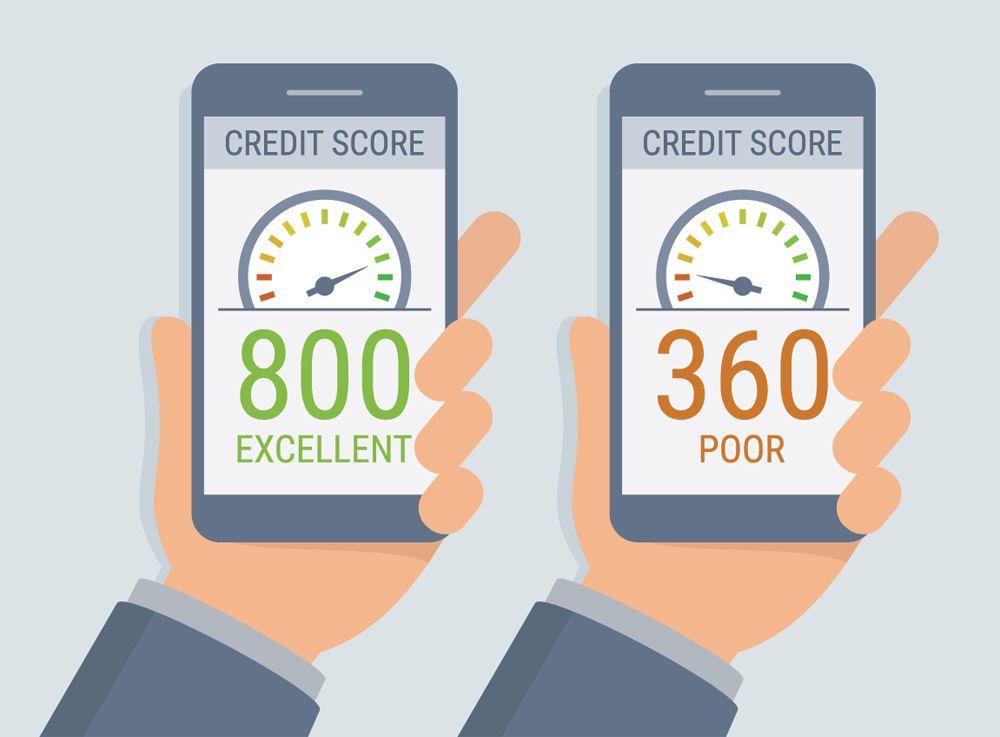Do You Know Your Credit Score? Here’s 4 Reasons To Check It Regularly
Some of the links on this page are from affiliate partners which earn us a commission. We only bring you things we think you’ll like.
Credit scores can be a scary concept, especially when you’re applying for a mortgage or a car loan. However, ignorance isn’t bliss when it comes to your credit. Keeping tabs on your score is incredibly important for a number of reasons.
1. Knowledge is power.
Whether your credit score is stellar or in need of major improvement, knowing the actual number is an important step on the road to being financially responsible. Ignoring your score and the factors behind it can leave you in the dark, unaware of where you stand when it comes time to buy a house or apply for a loan. Knowing your score helps paint an overall picture of your finances and gives you an idea of your borrowing power, so you’re less likely to be surprised by the decisions of lenders.
One of the best ways to keep on top of your score is to let a website such as Credit Sesame do the work for you. The site is completely free to join and sends you an updated score each month. It also sends you daily alerts to let you know if anything has changed, and allows you to track all your financial information in one place, including payments, interest rates, and credit ratios. The score you receive from Credit Sesame is based on the VantageScore 3.0 model provided by TransUnion.
It’s important to remember that you have several credit scores calculated from different bureaus, and that most lenders use FICO scores. However, it is generally safe to use your VantageScore as a benchmark, and to assume that any trends seen on that report will be reflected on other ones. This is because all scores are calculated using the same five aspects of your credit — payment history, credit age, credit utilization, credit mix, and recent credit.
2. It can encourage you to make changes.
Credit reports tell you more than just your score, such as habits that might be affecting your credit in a negative way. Those factors include using too much of your revolving credit, making late payments, or having too many hard inquiries on your file. Once you’re aware of why your score isn’t as high as it could be, you can start changing your financial behavior and see your number improve in no time.
The best things you can do to quickly improve your score are to keep balances low, pay your bills and other financial obligations on time, and pay off debt rather than transferring balances from card to card.
Getting your credit limits raised can also help, as it will lower your utilization ratio. However, you should only opt for this tactic if you’re a financially responsible person who won’t feel tempted to use the increased spending power.
3. It can help you spot errors.
Credit bureaus aren’t perfect, and inaccuracies in reports are more common than you might think. This should perhaps come as no surprise, as each of the “big three” agencies — TransUnion, Equifax, and Experian — are said to have files on more than 200 million people.
Mistakes on your credit report can include having someone’s else’s information on your file — particularly if you share a similar name or Social Security number — or having wrong information about your own accounts. It’s also not unusual for a bureau to believe that closed accounts still remain open, or to list some debts more than once. Accounts can also be wrongly reported as late or delinquent.
Correcting errors can be a time-consuming and often frustrating process marred with paperwork and bureaucracy. However, websites like Credit Repair can help guide you through the process. The company works with credit bureaus to dispute unfair or inaccurate items that negatively affect your credit score, and ensures all information on your credit history is current and accurate. It also provides you with monitoring and alerts powered by TransUnion.
4. It can reveal if you’ve been the victim of identity theft.
Identity theft is a lucrative business for thieves who have become extremely good at circumnavigating anti-fraud barriers. In fact, a February study from Javelin Strategy & Research found that fraudsters successfully targeted a record 15.4 million Americans in 2016 — a 16% increase from the previous year. In total, they stole $16 billion dollars.
Keeping on top of your credit score can help you understand if you’ve fallen victim to this fast-growing crime. If you see unfamiliar charges or accounts on your file, you’ll want to act fast. Filing a police report and putting a fraud alert on your credit reports should be your first two steps.
You’ll also want to inform your bank and credit card issuers, and file an identity theft affidavit with the Federal Trade Commission (FTC). It doesn’t hurt to contact the Social Security Administration and the Internal Revenue Service (IRS) if you believe your Social Security number may have been compromised.
TransUnion’s TruIdentity program is a great way to protect your identity. It’s completely free, and allows you to lock out thieves with the touch of a button — faster than a traditional freeze. It also monitors your report, keeps you up to date with alerts, and provides up to $25,000 in identity theft insurance.
While paying your bills on time and not maxing out your credit cards are certainly great rules to live by, staying informed about your credit score is just as important.










































